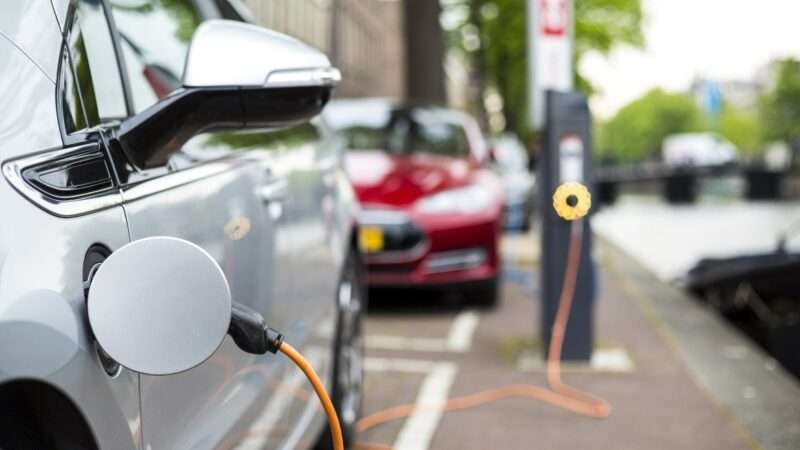
A massive heatwave has come to California, so citizens of the Golden State may be enduring triple-digit temperatures for a week. The pressure the heat will throw onto the state's power grid has prompted an emergency call for citizens to reduce electricity use during peak early evening hours. Democratic Gov. Gavin Newsom has declared a state of emergency that temporarily eases some state regulations limiting operations of thermal power plants and portable generators.
Part of this call for citizens to reduce electricity consumption from 4 p.m. to 9 p.m. also includes a request that citizens "avoid charging electric vehicles while the Flex Alert is in effect." This request comes only a week after California leaders moved forward with a plan to ban most gasoline-powered vehicle sales in the state (with an exception for hybrid vehicles) by 2035.
Though it is true that such a ban will reduce emissions, switching to electric vehicles will over time dramatically increase the strain on California's power grid. If everybody in California went out and bought electric vehicles tomorrow, it would probably be an energy disaster.
That's probably not going to happen for a few reasons. California solely plans to ban sales, not all operation of gasoline-powered cars. Millions of Californians won't and probably can't afford to transition to electric vehicles within the next 13 years. Though California has the most electric vehicles registered of any state (550,000), that's out of more than 14 million total vehicles, so still a drop in the bucket.
In that sense, the slow-but-steady adoption of electric vehicles should give the state the opportunity to actually plan for an increase in energy demand. On Wednesday, lawmakers voted to keep the nuclear power plant, Diablo Canyon, open until at least 2030. It had been scheduled to be decommissioned by 2025.
A 2017 report from the California Energy Commission which forecasted energy demand until 2030 did so by assuming an increase in adoption of electric vehicles in the state. Their highest estimate assumes 3.9 million of these vehicles on the road in California by 2030. The increase in electricity demand would thus be significant, jumping from less than 1,000 gigawatt hours in 2017 to about 16,000 by 2030. California consumes about 260 terawatt hours of electricity annually, according to U.S. Department of Energy statistics. It would be an increase in energy demand of around 6 percent per year by 2030.
A single nuclear plant could handle a good chunk of this new demand, but the amount of energy generated would still be far less than needed to achieve California's long-term goal of getting rid of gas-powered vehicles entirely and switching to electric.
The government shouldn't be forcing people to purchase—or abstain from purchasing—certain types of vehicles in the first place. But beyond that, signaling to the public that the electricity grid is being overtaxed during the summer does not instill residents with confidence that California is prepared for the transition it's trying to mandate.
The post California Wants Everybody To Buy an Electric Car, but Its Own Energy Grid Can't Support It appeared first on Reason.com.







